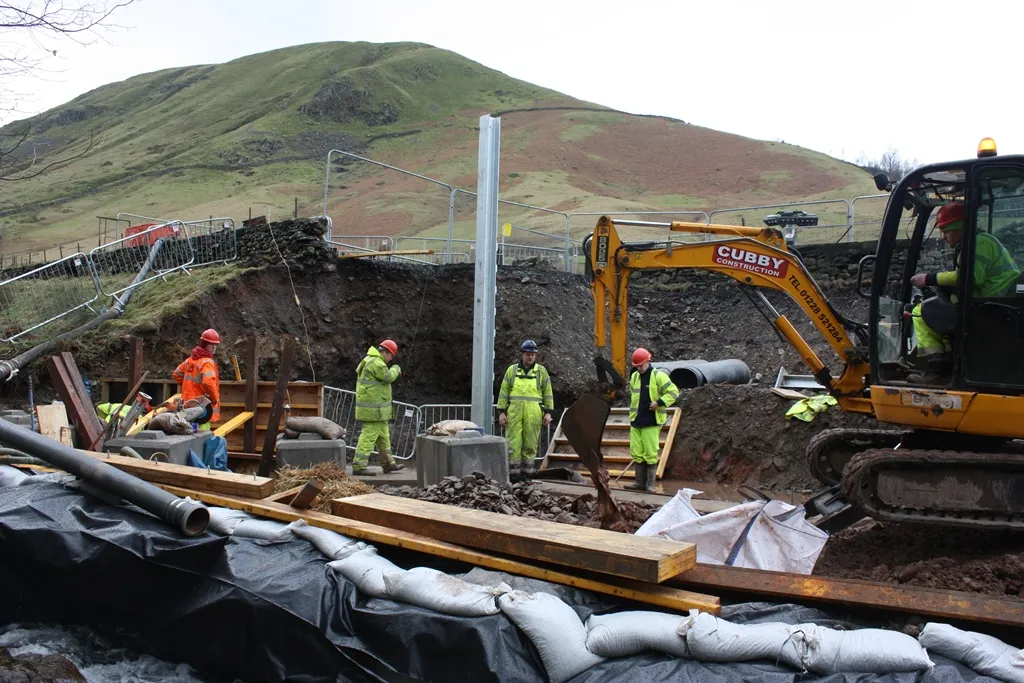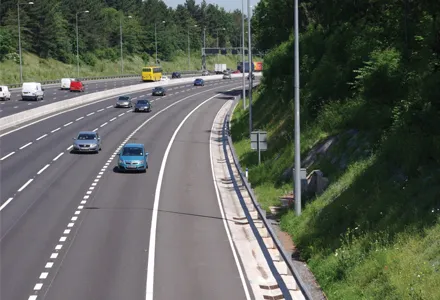
The first of 20 steel posts have been positioned for major road repairs to the A591 road in northern England under a £40 million project to repair December storm damage.
The A591 is a major local authority road in Cumbria. It links the M6 motorway near Brettargh Holt with important Lake District tourist destinations such as Kendal, Windermere, Ambleside, Grasmere and Keswick.
The restoration project is being led by
Last month, Kier Highways was appointed as main contractor for the re-build work on the A591 at Dunmail Raise, which was washed away. Posts are being fastened to the bedrock at the site and will be used to build a retaining wall in the beck at the side of the collapsed part of the A591.
Chris Holehouse, Highways England’s senior project manager for the scheme, said that the retaining wall is already starting to take shape. It wall will provide greater protection to the road from the effects of erosion.
The wall will be built using 4.5m-wide concrete panels which will be supported by the steel posts. More concrete will be poured behind the panels up to a thickness of 3.5m. The wall will also be covered with local stone so that it looks like a dry stone wall and blends in with the local landscape.
So far, Kier has removed all the loose rocks and stones from the edge of the beck, created strong foundations for the concrete wall panels and installed some of the steel supporting posts.







